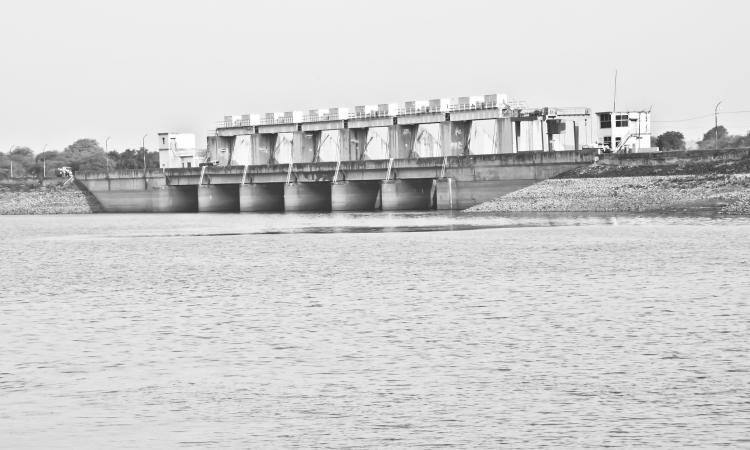
Hydropower is not fit for climate finance according to 300 organisations worldwide
In their 'Rivers for Climate' global declaration, 300 organizations from 69 countries have called on governments and global leaders not to use climate funding for so-called sustainable hydropower schemes. This Declaration, ahead of COP26, represents the views of civil society, peoples' movements, indigenous peoples' organisations, scientists, and conservationists.
These organisations have called for:
- A prohibition of funds committed under the Paris Agreement for the construction of new hydropower dams;
- Countries to remove new hydropower dams from their Nationally Determined Contributions (NDCs);
- A just and sustainable energy transition and economic recovery that centers around people and ecosystems
- Investment to rapidly upscale truly renewable energy sources capable of delivering needed energy access while transitioning away from destructive fossil fuels and hydroelectric dams.
According to the Global Declaration, rivers, wetlands, and natural lakes have immense value for humankind, ecosystems, and the survival of the planet. (Business Standard)
Odisha and Andhra Pradesh may have suffered losses of Rs. 2000 crore from Cyclone Gulab
Gulab, the cyclone that hit the country last week, did not intensify to become a severe cyclone, but did cause severe damage since it hit during harvest time. According to RMSI, a global disaster risk management firm, the economic impact of the cyclone is estimated at around Rs 2000 crore with the bulk of losses occurring in the agriculture sector, followed by building damage.
Even though both state governments took proactive measures to mitigate the impact, several fishermen from both Andhra Pradesh and Odisha are missing. The crop in Andhra Pradesh was in its final stages and had fallen due to heavy rain. Water stagnation affected all crops, except for paddy. (Hindustan Times)
Chandigarh’s groundwater exploitation is at semi-critical level: CGWB
According to the Dynamic Ground Water Resources of India, 2020, released by the Central Ground Water Board (CGWB), with 80.6 percent of groundwater extraction, Chandigarh has been categorised under ‘semi-critical’ category. The average of groundwater extraction for the country is 61.6 percent, 70-90 percent is classified as semi-critical, 90-100 percent is critical, and above 100 percent is over-exploited.
About 75 percent of the union territory's groundwater is used for domestic purposes, 20 percent for agriculture, and the rest for other purposes. Water consumption in the city is the highest in the country, at 245 lpcd.
Annual groundwater recharge has been measured at 0.063 bcm (billion cubic meters) and annual extractable groundwater as 0.057 bcm, which has increased from 0.03 to 0.046 bcm. (Hindustan Times)
Delhi-based Legal Initiative for Forest and Environment (LIFE) receives award
The environmental organisation Legal Initiative for Forest and Environment (LIFE) has received the 2021 Right Livelihood Award, also known as Sweden’s alternative Nobel Prize.
Through the award, LIFE has been recognised for its grassroots approach of empowering vulnerable communities to protect their livelihoods and claim their right to a clean environment. In 2005, Ritwick Dutta and Rahul Choudhary founded LIFE. Since then, LIFE has successfully fought some of India's most significant environmental threats, including helping local communities halt the construction of a large-scale bauxite mine in Odisha and a hydroelectric project in Arunachal Pradesh.
Among the other awardees are the Cameroonian woman's rights activist Marthe Wandou, the Russian environmental activist Vladimir Slivyak, and the Canadian Indigenous rights defender Freda Huson. (Hindustan Times)
Two more Indian beaches receive the international eco-label ‘Blue Flag’
The Foundation for Environment Education in Denmark have awarded Kovalam in Tamil Nadu and Eden in Puducherry the coveted international eco-label 'Blue Flag'. The total number of beaches with a Blue Flag certification now stands at ten. The eight beaches that received the tag in 2020 have also been recertified.
The release informs that the Environmental Ministry has achieved commendable results in the environmental management of these 10 beaches in the last three years, including sand dune restoration and nourishment, reduction of marine litter and plastic, and the scientific and responsible disposal of 750 tonnes of marine litter. In the ensuing five years of its vision initiative, the Ministry intends to develop and provide 100 additional beaches under the ICZM initiative. (The Weather Channel)
This is a roundup of important news published from September 22 – October 4, 2021. Also read policy matters this fortnight.
/articles/300-organisations-across-globe-call-no-climate-finance-hydropower